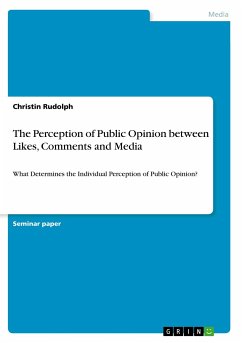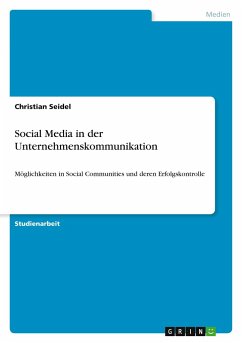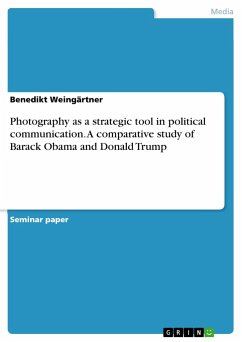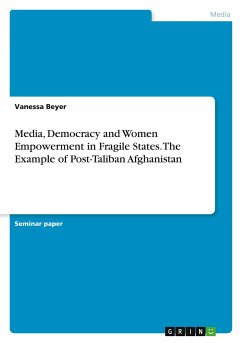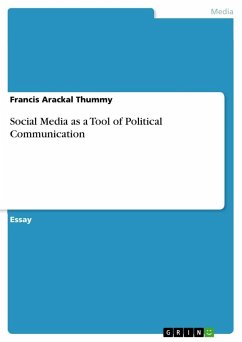
Social Media as a Tool of Political Communication

PAYBACK Punkte
0 °P sammeln!
Essay from the year 2015 in the subject Communications - Media and Politics, Politic Communications, grade: NA, , language: English, abstract: Since the US elections in 2008 the close connection between Social Media and political communication has been brought to the fore. The effective role that Social Media has been made to play once again in the 2012 US elections and its conscious or unconscious replication in the 2014 Indian elections reaffirmed its significance in contemporary political communication. Scholars have confirmed that political candidates are increasingly turning to Social Net...
Essay from the year 2015 in the subject Communications - Media and Politics, Politic Communications, grade: NA, , language: English, abstract: Since the US elections in 2008 the close connection between Social Media and political communication has been brought to the fore. The effective role that Social Media has been made to play once again in the 2012 US elections and its conscious or unconscious replication in the 2014 Indian elections reaffirmed its significance in contemporary political communication. Scholars have confirmed that political candidates are increasingly turning to Social Network Sites (SNS) to persuade voters and that these sites have become prominent sources of political information. Political Communication as a field of study has been about the role of communication in the political process. This paper would like to focus entirely on Social Media as a tool in the political process. Political communication has its beginnings during and between the World Wars. There are various types of political communication and political media. Among the political media the Social Media seems to be the most widely used in contemporary political process. The three main elements of political communication are: ideology, propaganda and persuasion. The deployment of Social Media in putting forth one's or party's ideology, propagating one's or party's agenda, and persuading the voter is widespread as never before. Many scholars including Walter Lippmann doubted the efficacy of media in public enlightenment that democracy requires. For, they thought that media cannot tell the truth objectively. Harold Lasswell too took note of the tendency of media propaganda to dupe and degrade the voters. His work expressed the fear of propaganda. This view was partly based on the direct effects theories of media. Similar fear about the Social Media is lurking in the minds of many today. To camouflage such fear political spin doctors might employ political Public Relations. Political spin doctors are press agents or publicists employed to promote favourable interpretations to journalists. They also weave reports of factual events into palatable stories. The case for political public relations is that it enables paternalism, pluralism, and pragmatism. But there is also a case against it in that it leads to news management and spin, corporatism in politics, and 'enlightened self-interest'. The increasing availability of internet even in remote parts of the world has made Social Media a virtual public sphere enabling e-democracy.




